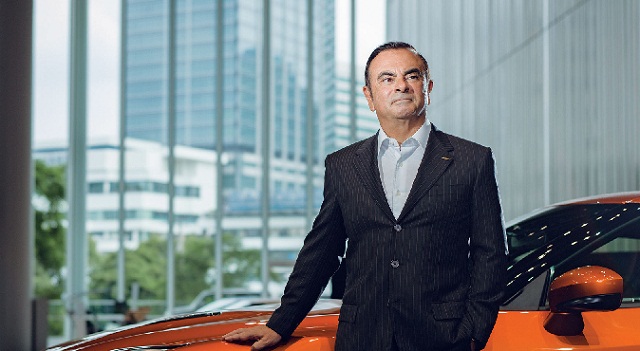
For every leader, managing your succession is a key task and one that must not be left until it is too late
COMMENT | Bill Emmott | The spectacular rise and fall of Carlos Ghosn, “Le Cost Killer” who saved Nissan after 1999 and built a powerful partnership of the Japanese carmaker, its big French shareholder, Renault, and Japan’s Mitsubishi Motors, resembles a Kabuki play, with the Japanese powers-that-be asserting themselves in the end. But Ghosn’s downfall is really more like a classic Greek tragedy, with contemporary German elements. This is a story of Hubris meeting Nemesis. And the best parallel to Ghosn is German Chancellor Angela Merkel.
Even superstar managers or political leaders risk disaster if they overestimate their power and outstay their welcome. That is what Merkel has done by remaining in office for 13 years, making her the longest-serving chancellor since Helmut Kohl held the post, from 1982 to 1998.
Within recent memory, Merkel was seen, rightly or wrongly, in heroic terms for her role in stabilising the euro single currency. But when she leaves office, probably in the next few months, she will cut a much-diminished, perhaps even humiliated figure.
At least her fate looks to be better than that of Ghosn, who was arrested in Tokyo when he landed there in a private jet, and now faces accusations that he misappropriated company funds and paid himself millions of dollars in hidden compensation. Whatever facts eventually emerge, the Brazilian-Lebanese-French executive’s career, which included 18 years running Nissan and 13 years running Renault, has come to an abrupt end.
Ghosn’s arrest holds many lessons. One is the newly prominent role of whistle-blowers in Japan’s corporate sector. As in the 2011 accounting scandal involving Olympus Corporation, Ghosn’s alleged misconduct was revealed to the company’s management by an inside source.
Another lesson, however, is that big Japanese firms’ auditing and other corporate-governance safeguards remain weak. If Ghosn truly has been hiding his real income from Nissan’s published accounts, there must have been collaborators in the company’s finance department, and such practices ought to have been identified by auditors and investigated by independent directors. Such a sudden, belated disclosure of executive malpractice casts a dark shadow over the entire firm.
That shadow extends to the claim that corporate governance in Japan has been improving substantially, following reforms encouraged by Prime Minister Shinzo Abe’s government. And yet that failure may be overlooked thanks to a further feature of this tale, evident after the arrest when the man who had been Ghosn’s co-CEO, HirotoSaikawa, brutally ejected him: Japanese managers have reasserted their traditional solidarity at the firm in an effort to shift the balance of power in the Nissan-Renault-Mitsubishi Motors alliance away from Renault and back toward Nissan.
This shift risks destabilising the alliance, but Nissan managers appear to regard that as preferable to being subsumed in a de facto merger – which is what the stories emerging in Tokyo suggest Ghosn was plotting. Renault currently owns a 43% stake in Nissan, while Nissan holds 15% of Renault and 34% of Mitsubishi Motors. Crossholdings of that sort are common practice in Japanese business, but full ownership may well have looked like a more sustainable long-term model to Ghosn and to Renault.
The main moral of this tragic tale, however, does not stem from a struggle between Japanese and European practices, much less from a pay squabble and dodgy corporate practices. It is that unless you own a company, you had better not think you can stay at the top of it forever.
Ghosn had remained chairman of Nissan after he stood down as co-CEO last year, and he evidently believed he could still call the shots. Managing your succession is a key task for any leader, one that must not be left until it is too late. He failed to do this, in part by failing actually to leave.
That is also what, if you take her literally, Merkel is doing now. In October, she announced that she would not stand in December for re-election as leader of the Christian Democratic Union, but claimed she would stay on as Chancellor until 2021. Yet as soon as her successor as party leader is chosen, the drums will begin beating for her immediate retirement – especially if the victor turns out to be her old rival, Friedrich Merz.
She would do far better to pre-empt that pressure by taking the initiative in announcing her own departure in December. It is too late for her to alter her legacy, which will always be dominated by her controversial decision in 2015 to throw open Germany’s borders to more than a million asylum-seekers from Syria and other Middle Eastern countries. Her last chance to influence what historians write about her will be to choose the moment and manner of her exit from the political stage.
Ghosn, by contrast, can now affect his legacy only through what his lawyers can prove in whatever trial eventually takes place. If only he had bowed out a lot sooner, handing over the reins gracefully and completely, his story would have remained one of great achievement. And a lot less damage would have been done to the companies he once served so well.
****
Bill Emmott, a former editor-in-chief of The Economist, is the author of` The Fate of the West’.
Copyright: Project Syndicate, 2018.
 The Independent Uganda: You get the Truth we Pay the Price
The Independent Uganda: You get the Truth we Pay the Price



